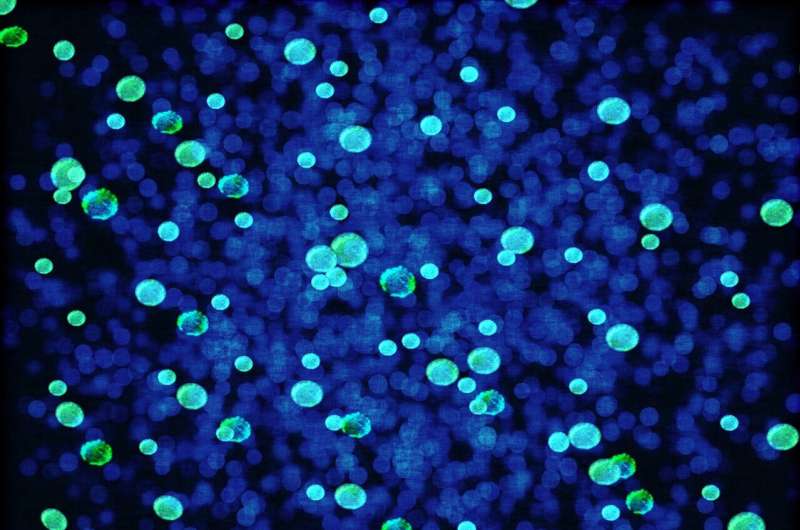This article has been reviewed according to Science X's editorial process and policies. Editors have highlighted the following attributes while ensuring the content's credibility:
fact-checked
proofread
Could microbes be the answer to detoxifying Scottish water sources?

Scottish researchers are discovering new ways of combating environmental damage caused by acid mine drainage in Scotland by studying bacteria that can degrade dangerous waste products.
Researchers at the University of Edinburgh, Scotland, are sequencing the DNA of bacteria found in areas polluted by acid mine drainage. They have discovered that the bacteria not only survived but had the potential to detoxify the environment by removing polluting heavy metals.
Coal mining was a major industry in Scotland until the last deep mine closed in 2002. And while Scotland has effectively banned coal mining due to environmental concerns, the effects of the practice continue to damage Scotland's world-renowned landscapes.
Acid mine drainage occurs in areas where metal-containing wastes from mining are exposed to air and water, creating a hazardous, acidic environment. Areas polluted by acid mine drainage are nearly 100 times more acidic than naturally occurring acidic areas, like peat bogs, which means they are extreme environments where it is nearly impossible for other life forms to survive.
The waste from mining is not only dangerous for the surrounding environment but is also hazardous due to the leakage and spread of mobile heavy metals. Heavy metals are dangerous pollutants; if heavy metals leach into drinking water and are consumed in high quantities, they can cause liver, kidney and intestinal damage and even cancer.
Even though mining puts extreme pressure on the environment, previous research has identified rarely documented populations of bacteria that have evolved to survive in the acidic conditions that mining creates. Now, for the first time, researchers have discovered how microbes can degrade these dangerous heavy metals to survive and are considering how they could be used in protecting and cleaning the environment.
Researchers from the University of Edinburgh, Scotland, were interested in finding out more about these microorganisms, how they survive, and whether they have any useful characteristics to exploit in biotechnology.
Michael McDonald, a Ph.D. student at the university in Dr. Andrew Free's lab, said, "The microbes can cope with these conditions, they've evolved in harsh environments, and we consider them to be extremophiles. We wanted to know what they were capable of and whether they could hold potential for exploitation and further use in biotechnology."
Michael and his colleagues began by collecting multiple samples of contaminated sediment from acid mine drainage areas 30 miles west of Edinburgh. They then reassembled the genomes of bacteria present to understand more about them. They found that the bacteria didn't just survive; their genomes showed that they had the ability to actively detoxify the environment and reduce the damage caused by heavy metals. These results show that organisms can not only survive in acidic environments but thrive and contribute to the function of the ecosystem and natural cycles.
Michael hopes that the characteristics identified in the bacteria by this research could prove even more useful in the future. "Now we know what they are capable of doing, in the future we may be able to exploit these bacteria in a sustainable way to help the clean-up of these sites." More research needs to take place, but researchers hope that as the bacteria are native to the site and can cope with the acidic conditions, they could be used in environmental recovery to protect Scottish water sources.
Michael McDonald will present his data at this year's Microbiology Society Annual Conference which will take place from Monday 8 April–Thursday 11 April 2024 at Edinburgh International Convention Centre. His talk "Microbial Life in Acid Mine Drainage: Detection of Novel Functions Through Metagenomics" will take place on Wednesday, 10 April, at 16:45.
Provided by Microbiology Society



















